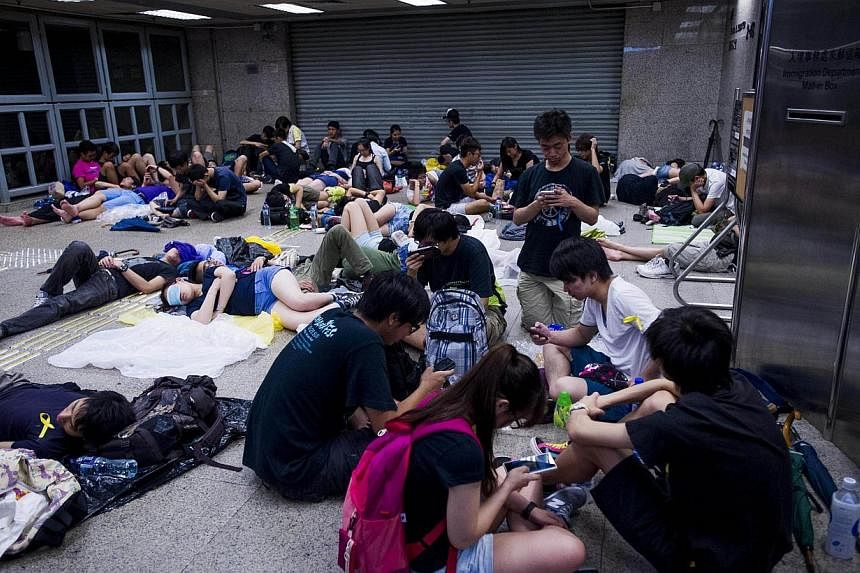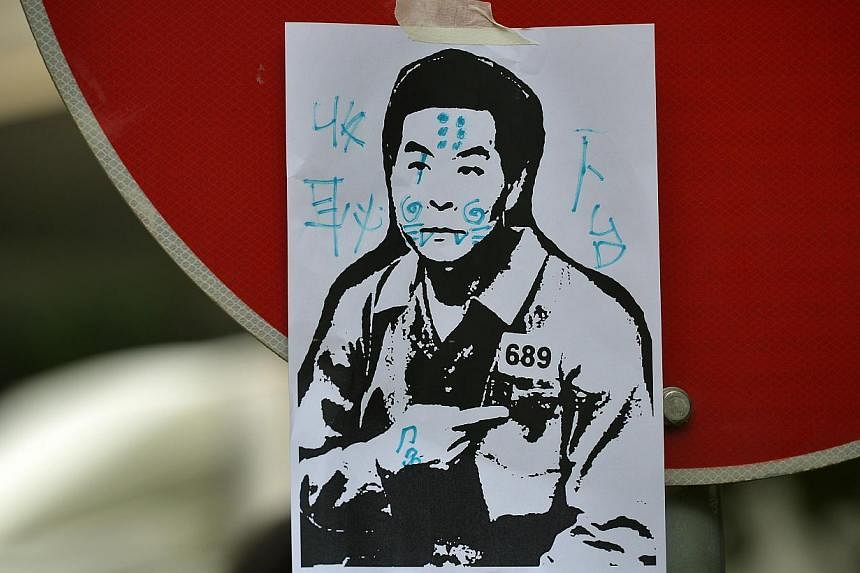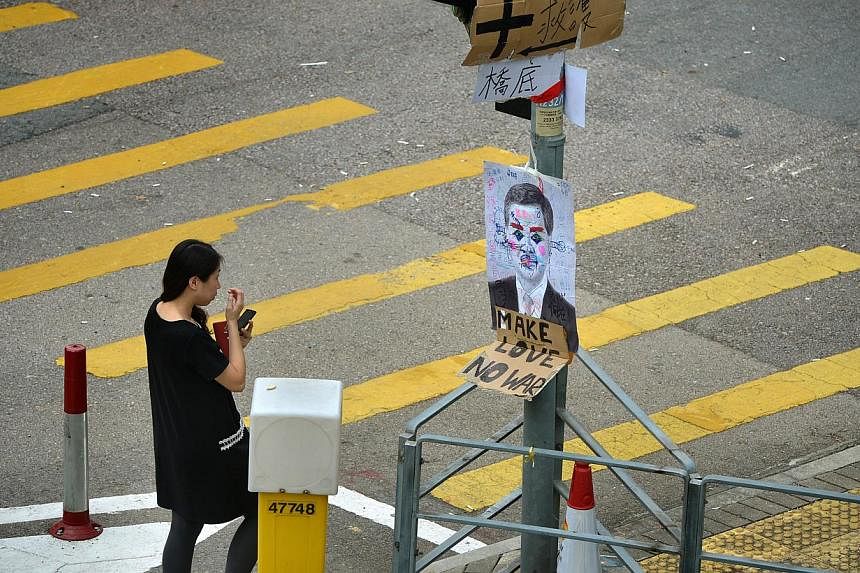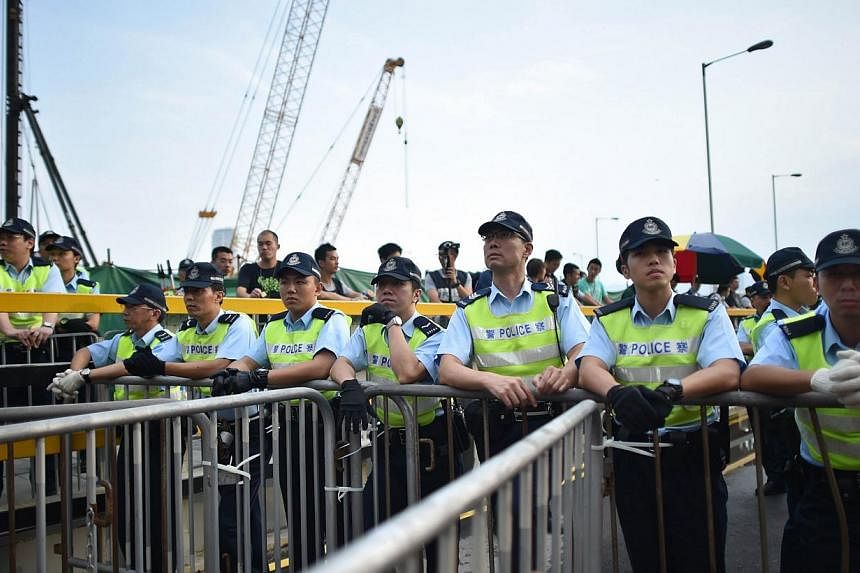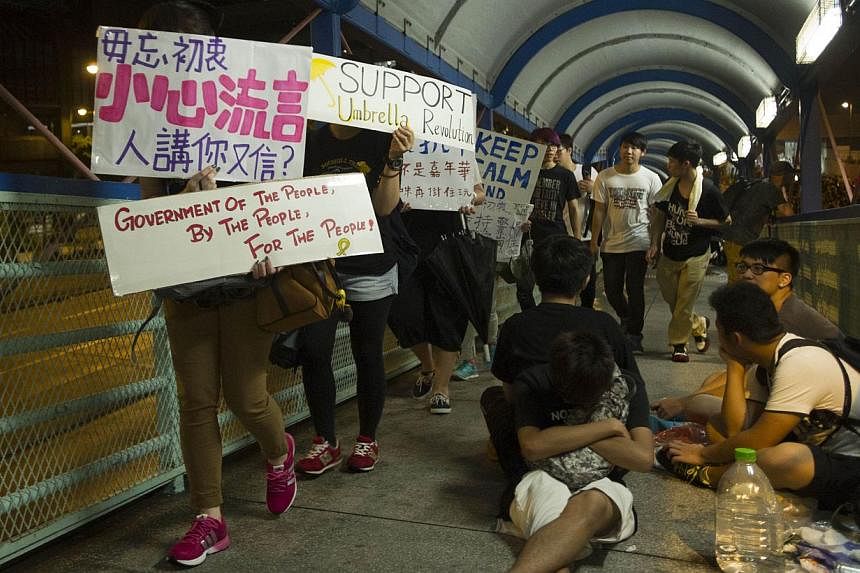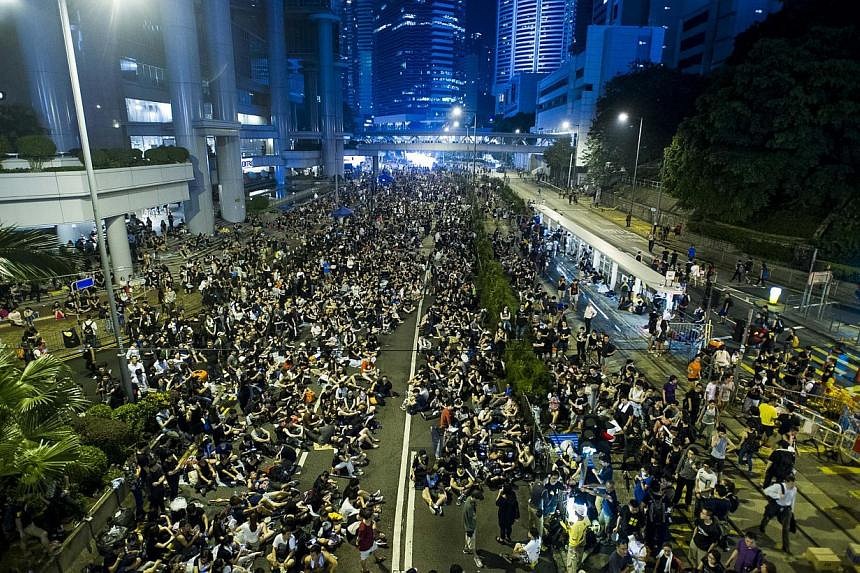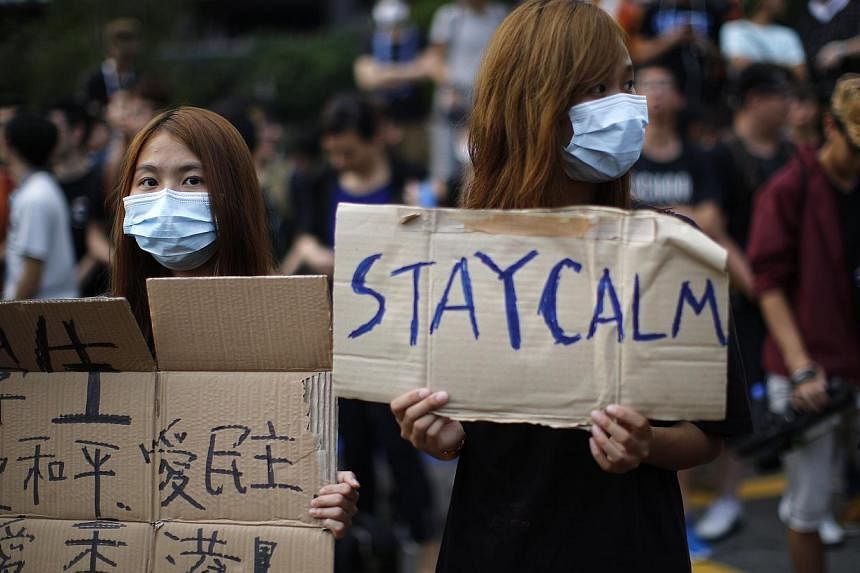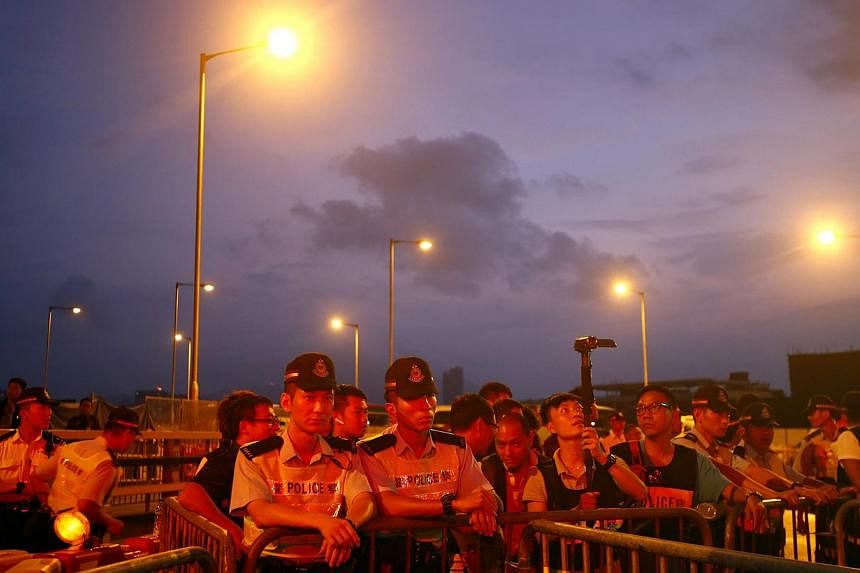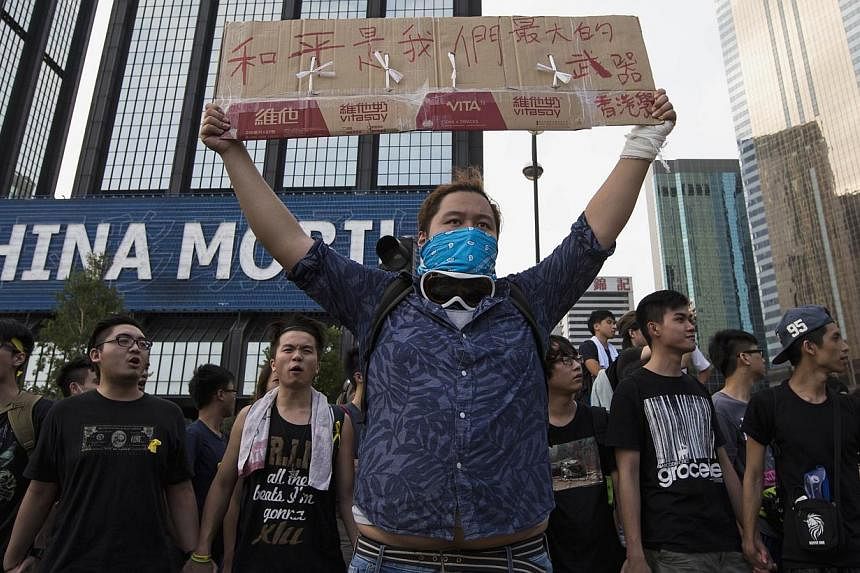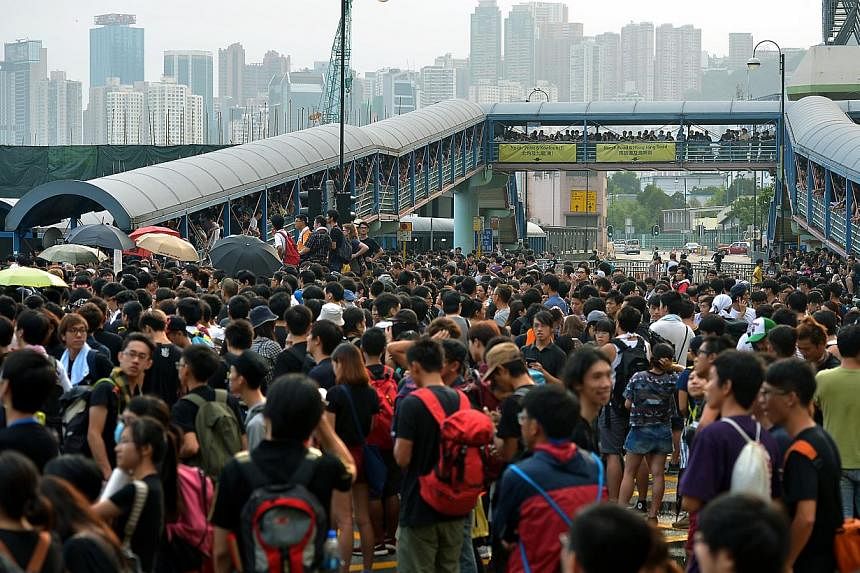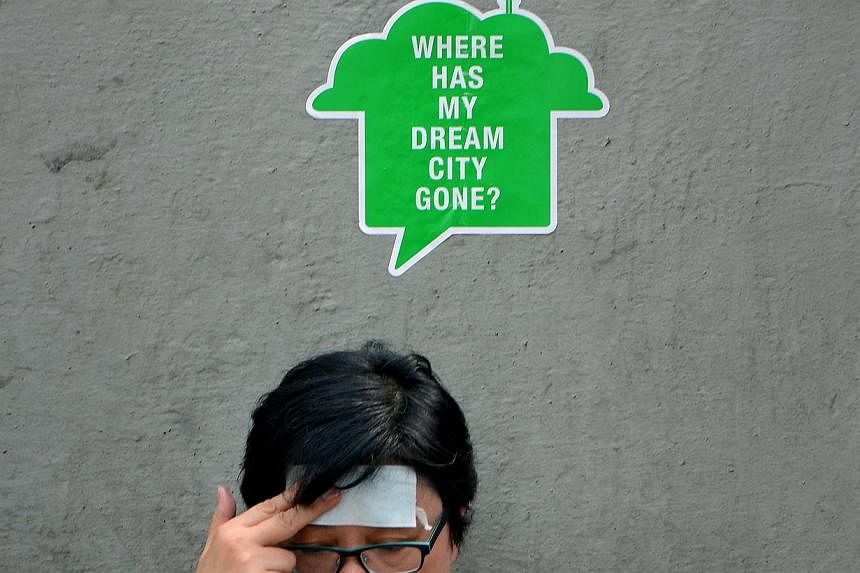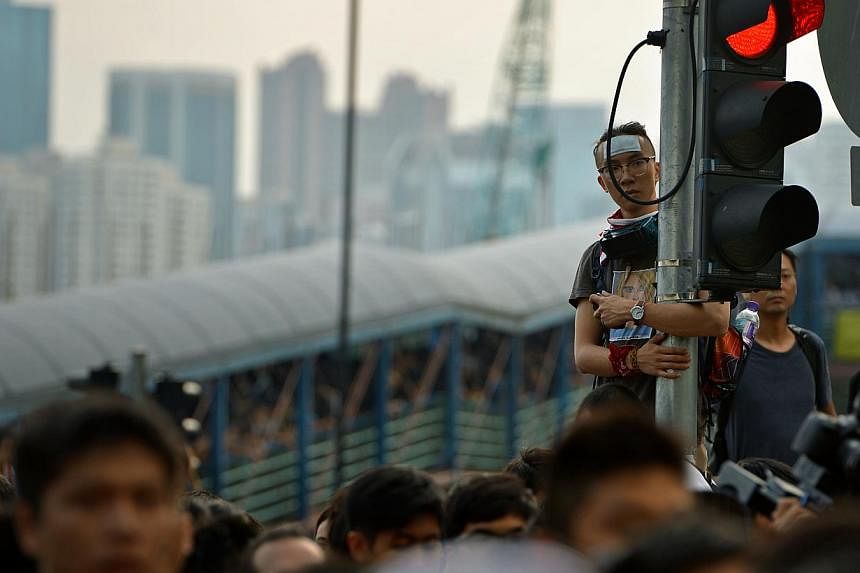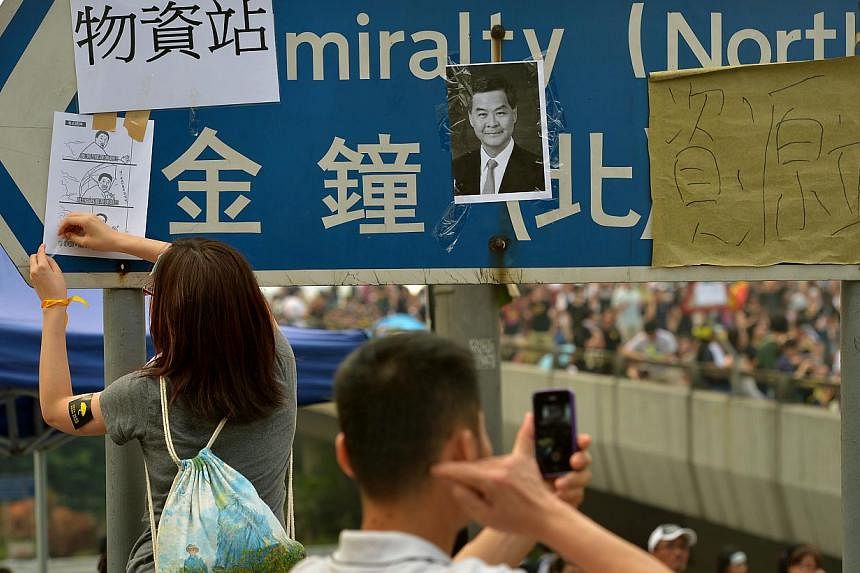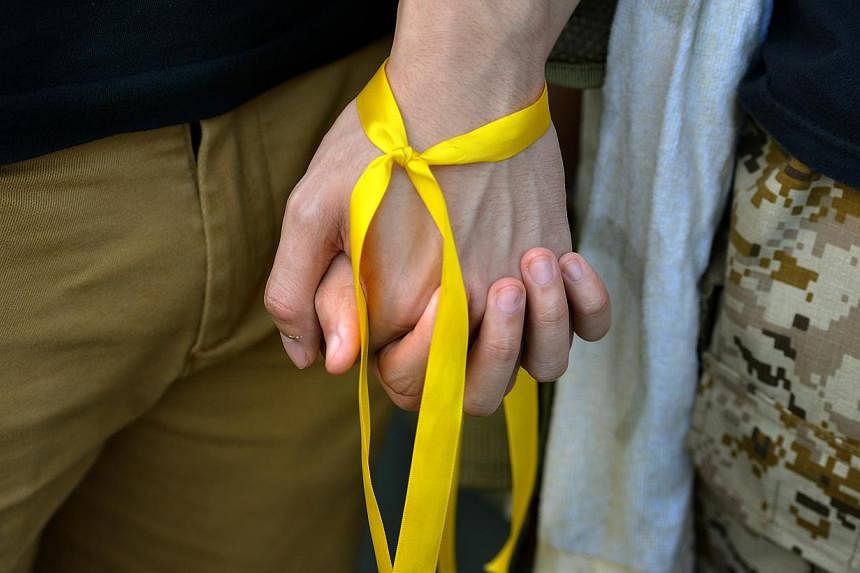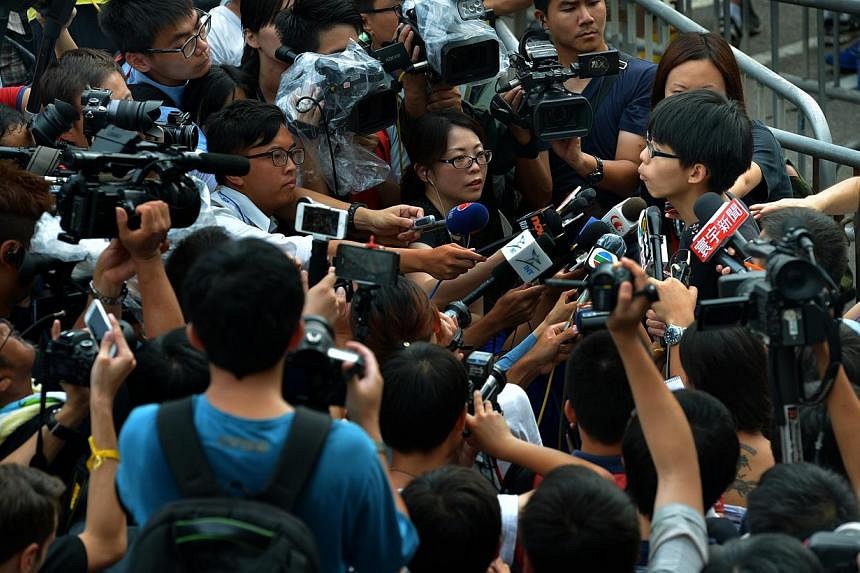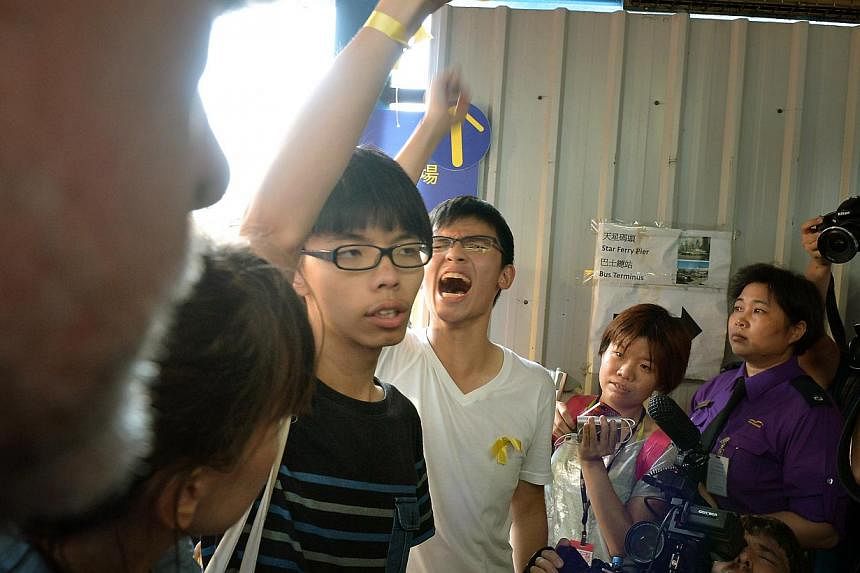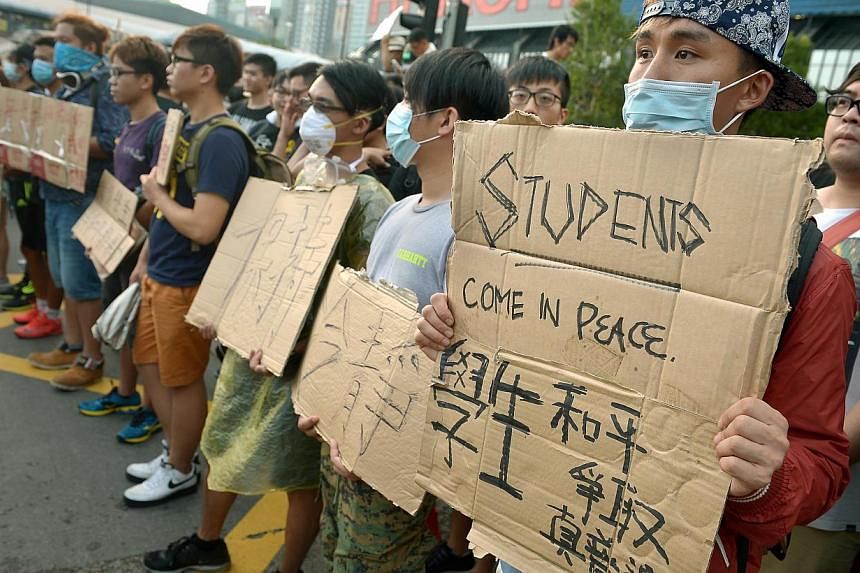Democracy protesters thronged the streets of Hong Kong on Wednesday, some jeering National Day celebrations, as demonstrations spread to a new part of the city, adding to the pressure on the pro-Beijing government.
The student-led protest showed little sign of flagging momentum, as demonstrators continued to occupy sections of the city, including around the Central financial district, in anger at China's decision to limit voters' choices in a 2017 leadership election.
Fears that police would use force to move crowds before Wednesday's celebrations - which marks the anniversary of the Communist Party's foundation of the People's Republic of China in 1949 - proved unfounded, but the 65th anniversary was marked with mixed scenes across the city.
Inside the Wan Chai Convention and Exhibition Centre, Chief Executive Leung Chun Ying, alongside prominent leaders including former chief executive Tung Chee Hwa and Beijing's representative in Hong Kong, Liaison Office Director Zhang Xiaoming, toasted the occasion with champagne and smiles.
When asked about the Hong Kong protests, Mr Zhang said: "The sun still rises."
They had earlier attended an outdoor flag-raising ceremony where student protesters were also present, including Scholarism activist group leader Joshua Wong, 17.

In a silent protest, they turned their backs on the Chinese and Hong Kong flags, raising and crossing their wrists to display the signature yellow ribbons of the pro-democracy movement, as the national anthem was played and the flags raised. Some other student demonstrators booed.
This was the first time that the student activists had made it inside the ceremony, after three years of trying.
Speaking to reporters after the ceremony, Wong said they were allowed to attend the event because the government was under pressure from the protesters across the city.
Chinese President Xi Jinping, in his first remarks on Hong Kong since the crisis erupted over the weekend, did not allude directly to the political turmoil but reiterated that the central government remains steadfast in implementing the "one country, two systems" framework and the Basic Law, and that it will support the long-term prosperity and stability of Hong Kong and Macau.
At a National Day banquet in Beijing on Tuesday night, Mr Xi said: "We strongly believe that enveloped within the motherland, our Hong Kong and Macau compatriots will surely forge a better future."
Record crowds are expected to join the protest movement in Hong Kong on Wednesday, given that it is a public holiday.
One of Hong Kong's most prominent pro-democracy leaders warned that the protests would spread like "blossoming flowers" and pleaded with residents to understand why the city has been brought to a standstill.
"We understand why citizens are continuing to expand the occupation, it is because the government is so cold," an emotional Chan said, regularly having to stop speaking to compose himself. "Despite such a large occupation, the government is still using such an attitude, so a lot of people think that the action now is not enough and that flowers must continue to blossom everywhere."
Student protesters on Tuesday had demanded that Mr Leung speak to them by the end of the day - or face the prospect of an escalation of protests.
But some were also edgy about the prospect that provocation on National Day - usually celebrated in a high-profile manner - could spark violence. Already, the traditional Victoria Harbour fireworks show had been cancelled.
Thunderstorms overnight failed to douse the enthusiasm of the protesters, who simply popped open the colourful umbrellas that had become a symbol of the movement.
A new sit-in site opened up at Tsim Sha Tsui's shopping stretch, which is hugely popular among mainland tourists.
This is on top of the existing protest sites at Admiralty, Wan Chai, Causeway Bay and Mongkok, where crowds had blockaded major roads.
On whether he is worried about the inability of organisers to control the protesters given the growing number of sites, Wong expressed "confidence in the people", but added that he hoped they will stay put at the current sit-in locations due to the need to coordinate resources.
Clashes between protesters and police had broken out on Sunday - the first day of the Occupy Central movement - when protesters charged at police cordons resulting in the use of pepper spray and tear gas. It was the first time since 1967 when riots rocked the city that tear gas was used on Hong Kongers, leading to outrage among many.
Since then, the government has discernibly dialed down the police presence, leaving protesters to organise themselves.
Mr Leung, speaking at the National Day reception, appealed again for "society to work with the government to use a peaceful, legal, rational and pragmatic method" to complete the constitutional reform process.
He argued that the method as laid down by Beijing is an improvement over the current way of selecting Hong Kong's leader via a 1,200-member election committee.
China's legislature, the National People's Congress Standing Committee, had on Aug 31 laid down rules that allow for one-person, one-vote, but stipulate that candidates running for election must first be pre-screened by a nominating committee formed along the same lines as the current election committee. This is made up mainly of Beijing loyalists and vested interest representatives.
Pro-democracy activists have denounced this as "sham democracy" and want Beijing to rescind the decision and for Hong Kong to restart the reform process.
They have also called for Mr Leung to resign as a pre-condition for any retreat of the protests.
The developments had made headlines across the world, and local reports said that Chinese Foreign Minister Wang Yi is expected to discuss them with US Secretary of State John Kerry at a meeting on Wednesday.
UN Secretary-General Ban Ki Moon has urged "all stakeholders to resolve any differences in a manner that is peaceful and safeguards democratic principles", while France has also expressed concern about the protests.
With inputs from AFP and Reuters
